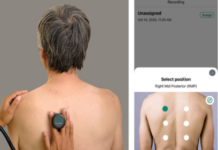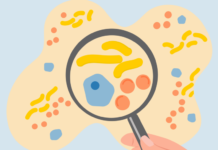NEW DELHI– Bacteria commonly found in the mouth may play a role in triggering Parkinson’s disease once they colonize the gut, according to new research from South Korea.
Scientists at the Pohang University of Science and Technology have identified how metabolites produced by Streptococcus mutans — a bacterium best known for causing tooth decay — can damage brain neurons and contribute to the development of Parkinson’s, a progressive neurological disorder marked by tremors, rigidity, and slowed movement.
“Our study provides a mechanistic understanding of how oral microbes in the gut can influence the brain and contribute to the development of Parkinson’s disease,” said Professor Ara Koh, who led the research. “It highlights the potential of targeting the gut microbiota as a therapeutic strategy, offering a new direction for Parkinson’s treatment.”
The findings, published in Nature Communications, revealed that S. mutans produces the enzyme urocanate reductase (UrdA) and its metabolite imidazole propionate (ImP). Elevated levels of ImP were found in both the gut and blood of Parkinson’s patients. Researchers said the metabolite can enter circulation, reach the brain, and accelerate the death of dopamine-producing neurons — a hallmark of Parkinson’s.
In mouse models, introducing S. mutans or genetically engineered E. coli expressing UrdA led to increased ImP in brain tissue. The animals developed Parkinson’s-like symptoms, including impaired motor function, loss of dopaminergic neurons, neuroinflammation, and abnormal protein aggregation.
Further testing showed that the damage was linked to overactivation of the protein complex mTORC1. When mice were treated with an mTORC1 inhibitor, symptoms and brain damage were significantly reduced.
The research adds to growing evidence of the gut-brain connection in Parkinson’s disease and suggests that modifying the oral–gut microbiome or targeting its harmful metabolites could open new avenues for therapy. (Source: IANS)














